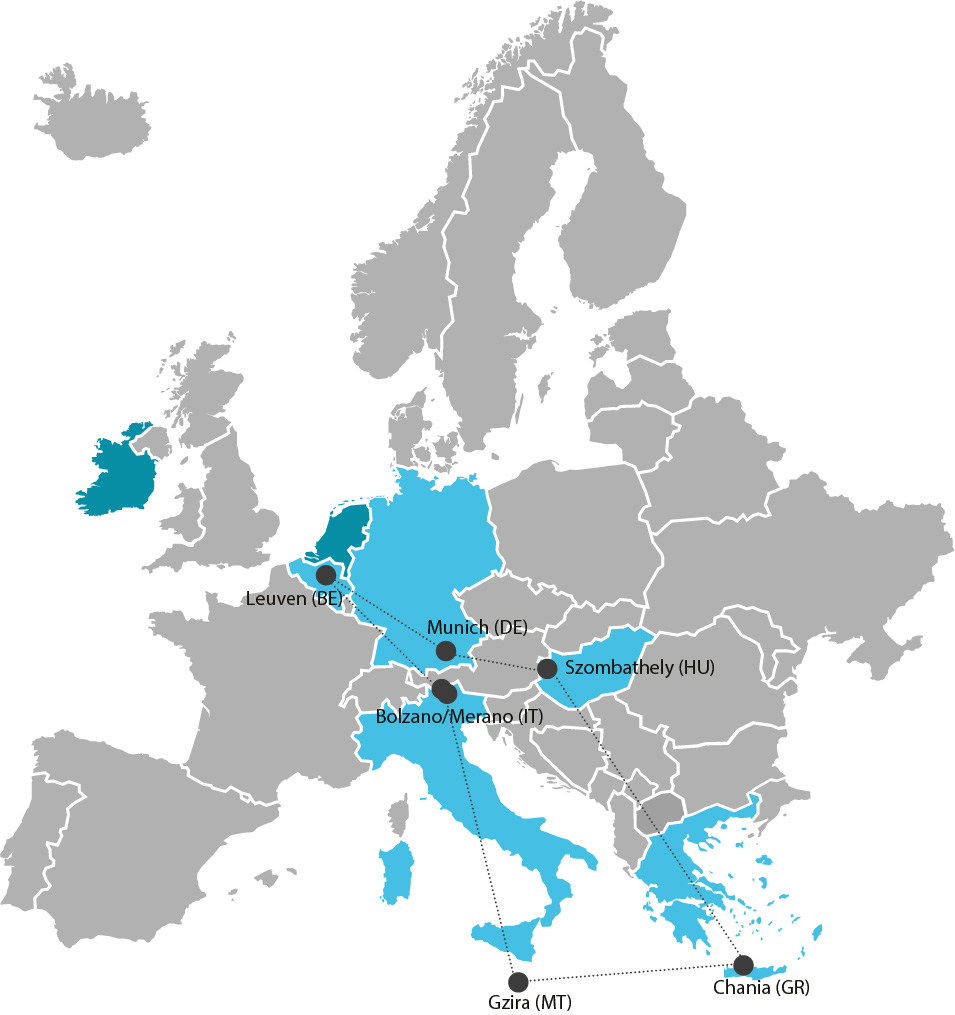Recap of Urban Lab Session “Championing Local Green Deals”
ISOCARP Institute has organised and coordinated the Urban Lab Session “Championing Local Green Deals”, as part of the Urban Thinker Campus “A Local Green Deal” organised by the city of Mannehim (Germany). The session took place online on Friday 16th July 2021.
Through the European Green Deals, the European Union has set the ambitious target of becoming the first carbon-neutral continent by 2050. The European Green Deal includes various actions, measures and tools in nine policy areas (such as clean energy, sustainable mobility, biodiversity, etc.). However, it is crucial to transform the direction given by the Green Deal into local actionable projects and concrete interventions. The session collected and discussed valuable practices and experiences in the implementation of Local Green Deals.
In his keynote presentation, Martin Knuijt (OKRA) reflected on how to design healthier and resilient cities. By presenting some of his work in different urban contexts, he emphasized the importance of preserving biodiversity, connecting places to increase social cohesion, and designing adaptive infrastructure, especially when it comes to water management. This is only possible through integrated and holistic solutions, able to meet citizens’ needs and generate their enthusiasm.
Afterwards, the session continued with a series of contributors from city representatives and experts from different background. Elsa Durieux (ICLEI) framed the discussion around the European Green Deals as new approach to accelerate and scale-up cities’ sustainability ambitions, discussing the main challenges and barriers; she also introduced the Local Green Deals Blueprint for Action. Nicolas Gharbi (city of Madrid) presented the case of the metropolitan forest of Madrid, the flagship project for the recovery plan of the city; the forest will be a 75 km ring infrastructure connecting existing green spaces around Madrid. Valentina D’Alonzo (EURAC) gave an overview of H2020 project VARCITIES, and its holistic approach in developing visionary solutions which link nature-based solutions, urban health, public spaces and smart cities. Elisa Torricelli (city of Milan) brought the experience of the city of Milan, showing the work of the Environmental Transition Department in developing local plans and initiatives to increase urban resilience.
Beside inviting some speakers, ISOCARP Institute opened a Call for Contributors to collect experiences from different countries and to ensure a truly international perspective. Sevval Cavusoglu brought her experience from Turkey and reminded the importance of decision support systems for low-carbon city projects. Bhagyashri Kulkarni reflected on bottom-up and participatory practices to manage green public spaces in collaboration with citizens, beyond traditional public-private partnerships. Joana Bispo introduced the Sustainable Development Strategy of the city of Teresina (Brasil) and presented some specific projects, highlighting also the monitoring of SDGs at the local level.
Milena Ivkovic moderated the last part of the session, with questions and answers and the closing remarks.
Speakers, Contributors and presentations

Keynote Speaker
Martin Knuijt – OKRA
Topic: Adaptive urban design



Joana Bispo– City of Teresina (Brazil)
Topic: Teresina 2030 – Sustainable Development Strategy of the Municipality of Teresina

Valentina D’Alonzo – EURAC and VARCITIES
Topic: VARCITIES – Visionary Nature-based Actions for Health, Well-Being and Resilience in Cities

Bhagyashri Kulkarni – Architect, Urban Designer (India)

Sevval Cavusoglu– Urban Planner and Junior Expert (Turkey)

Programme
- 09.30 – 09.35
Introduction | ISOCARP Institute - 09.35 – 09.50
Keynote speaker presentation | Martin Knuijt, OKRA - 09.50 – 10.40
Call for Contributors: share your story!
Elsa Durieux, ICLEI
Nicolas Gharbi, Municipality of Madrid
Joana Bispo, Municipality of Teresina
Valentina D’Alonzo, EURAC & VARCITIES project
Bhagyshri Kulkarni, architect and urban designer (India)
Sevval Cavusoglu, urban planner (Turkey)
Elisa Torricelli, Municipality of Milan - 10.45 – 10.55
Discussion | Local actions for Green Deals
Moderated by Milena Ivkovic - 10.55 – 11.00
Recap and closing | ISOCARP Institute











